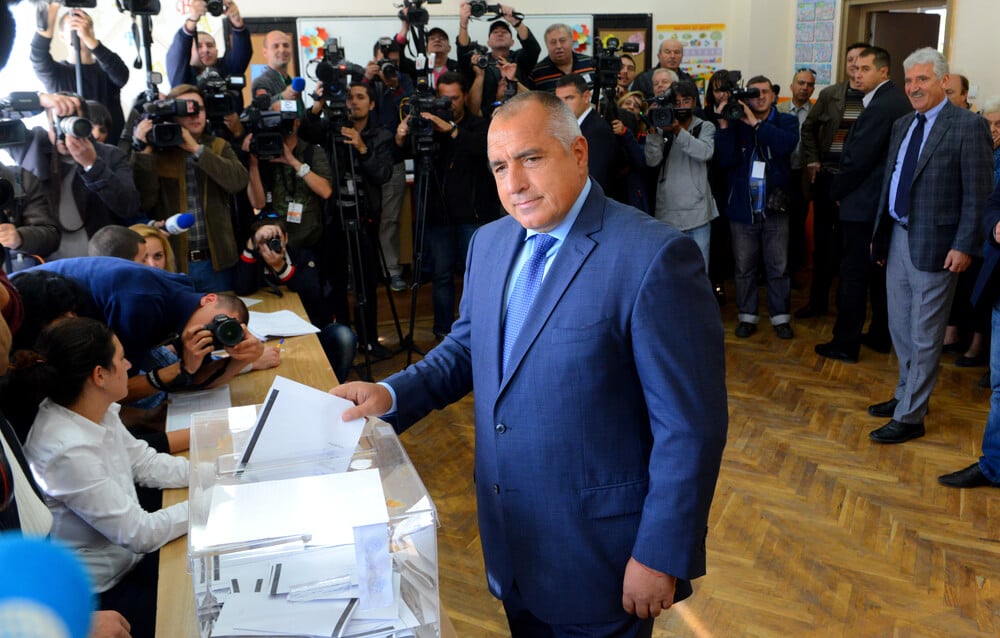Bulgaria should hold another round of snap parliamentary elections in October, marking the seventh in just three years.
Political instability, no functioning government since 2021, and a series of elections that do not produce solutions give little hope that another attempt in October will bring about a shift.
At the same time, the unreadiness of political leaders to end the institutional blockade through compromise is leading to an even longer-term problem of political apathy and mistrust in the democratic system.
That is why, rightly, Bulgaria faces the option of changing its electoral system as a possible way out of the democratic impasse it has been in for years.
The last parliamentary elections on June 9, which took place at the same time as the elections to the European Parliament, saw a worryingly low number of Bulgarians go to the polls, just over 34%.
Since 1991, when the country held its first multi-party elections, this has been by far the lowest turnout. Moreover, such a low turnout shows that the problem with democracy in Bulgaria is far greater than the inability of the principal institutions, the parliament and the government, to function.
Distrust of politicians
Over the past three decades, Bulgarian citizens have been keen to participate in political life. In the first democratic elections in 1991, voter turnout was almost 84%, and in subsequent rounds it was around 60%.
The sudden decline in interest in the elections coincides with the institutional crisis when the government of the centre-right GERB party and its leader, Boyko Borisov, resigned after civil protests in 2020.
The then prime minister and his party still have the most MPs in parliament, 68 out of a total of 240, but not enough to form a government. Bulgarian President Rumen Radev offered the mandate to each of the largest factions in parliament after the June elections, but they all rejected him because they could not muster a majority.
According to the constitution, President Radev should now appoint a caretaker PM and call elections in the next two months
The last in line to do so was the 'There is Such a People' (ITN) party, a small group that only came in sixth in the June elections. According to the constitution, President Radev should now appoint a caretaker PM and call elections in the next two months.
"The spiral of inconclusive elections continues and it not only causes irritation, but also unlocks a number of destructive processes. I appeal for a meaningful political debate and fair play in the weeks ahead. Otherwise, we are doomed to repeat procedures that more and more people see as pointless," stated president Radev.
Who will solve the problems?
In fact, Bulgaria has a number of structural problems that it cannot solve, mainly because of internal political instability and a multi-year gap in the functioning of its institutions.
In this institutional vacuum, Bulgaria has only managed to partially enter the Schengen area together with Romania as of March 31, but only at border crossings at airports and seaports.
However, with 97% of goods transported by land, rail, and road, this only facilitates 3% of trade for the Bulgarian economy, the weakest in the EU.
There is a consensus that the country should join the eurozone, but the European Commission and the European Central Bank do not agree
As far as the political options in Bulgaria are concerned, there is a consensus that the country should join the eurozone, but the European Commission and the European Central Bank do not agree. At the end of June, these institutions announced that Bulgaria is not yet ready to join the eurozone because it does not meet the inflation criteria.
In the elections, Bulgarians will soon have a new opportunity to stabilise their institutions and thus start solving the major problems, starting with the economy and widespread corruption.
Changing the electoral system
However, the seventh attempt to form a functioning government and parliament in just three years gives little hope for change. It is also possible that voter turnout will be even lower than in June, casting another large shadow over the legitimacy of the institutions and their ability to conduct state policy with full capacity.
Changing the legal framework within which the political system operates is increasingly being mentioned as the only way out of the blockade that political inertia has created in the country.
 Only 13% Bulgarians believe that their politicians are working in the interest of society - Former PM Boyko Borisov
Only 13% Bulgarians believe that their politicians are working in the interest of society - Former PM Boyko Borisov
Some of those changes have already been made with the consent of the two largest parties, Boyko Borisov's GERB and the liberal We Continue the Change–Democratic Bulgaria (PP-DB), but they only concern limiting the powers of the president in periods when the government cannot be formed.
Additionally, these parties tried to introduce government leadership rotation in 2023, but this agreement only worked until the first change of the head of government and allowed the crisis to continue.
Some of the models for changing the political system that are being advocated are the introduction of a mixed system for electing MPs or a majority voting system with the aim of avoiding a blockade in the constitution of the institutions.
However, the institutional blockade also prevents decisions on some of these changes to the electoral game. Even with regulatory changes, Bulgaria will need years and at least one more election cycle after October for them to take effect.
During this time, Bulgarians will remain apathetic about the political process and have little trust in all political actors. Although the majority of citizens believe that parliamentary democracy is the best system despite all its shortcomings, according to a March survey, only 13% believe that their politicians are working in the interest of society.